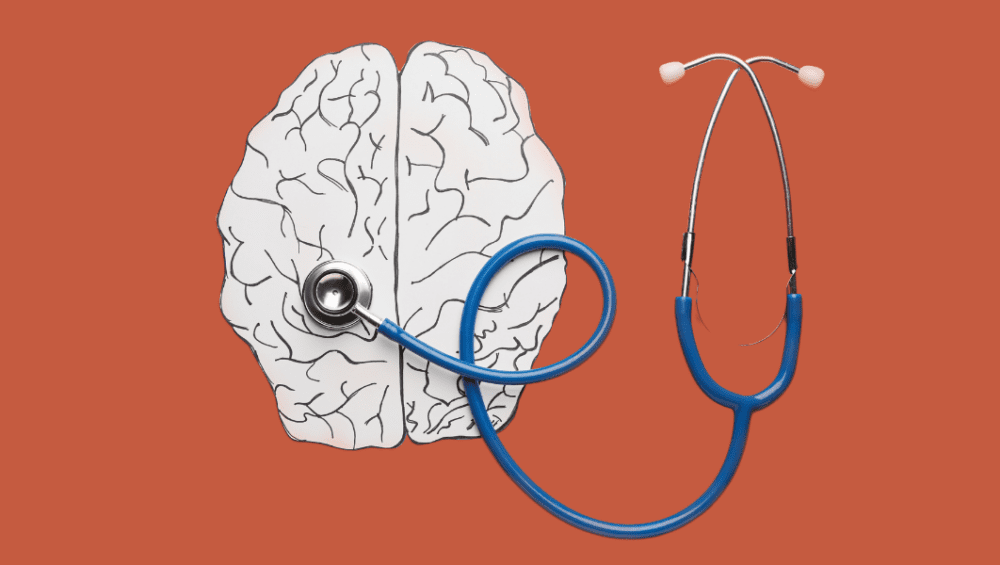In the hustle and bustle of our daily lives, mental sluggishness can sneak up on us, casting a fog over our thoughts and actions. It’s a phenomenon many of us have experienced, and its roots are as diverse as the tasks that fill our days.
Picture this: you’re juggling work deadlines, managing household chores, and navigating the intricate dance of life. Suddenly, you find yourself in the midst of a mental fog, struggling to concentrate and feeling an overall sense of confusion. What could be causing this haze?
You could have brain fog — a cluster of symptoms including mental fatigue, lack of focus, disorganization and more. And it tends to strike at the most inconvenient moments.
Before you start blaming yourself, know this: experiencing brain fog is not a personal failure. Instead, it often serves as a signal that our bodies need rest and may be missing crucial components of a healthy lifestyle. So, let’s delve into recognizing the nuances of brain fog and explore effective ways to banish it from our daily narrative.
Symptoms of brain fog
Curious if you’re encountering the subtle but impactful presence of brain fog? Before we dive into the details, let’s uncover the potential signs that may suggest the presence of brain fog:
- Struggling with poor concentration
- Feeling a bit confused
- Noticing a slower pace of thinking
- Experiencing fuzzy thoughts
- Dealing with forgetfulness or lost words
- Wrestling with mental fatigue
These subtle indicators can often be gentle nudges from your body, signaling the possibility of brain fog subtly impacting your day-to-day experiences.
What causes brain fog
Stress emerges as a prominent culprit. The demands of our fast-paced lives often lead to heightened stress levels, triggering mental fatigue and contributing to the enigma of brain fog. Yet, there’s more to the story. Research reveals that beneath the surface, lurking within our immune responses, lie potential triggers like allergies, the notorious COVID-19, or the familiar common cold. These underlying illnesses can divert our body’s energy, leaving us with a mental fog that clouds our clarity.
Lack of sleep, sedentary habits, and an unbalanced diet each play a role in this cognitive mystery as well. Our bodies and minds are intricately connected, and neglecting one aspect can cast shadows on the other. Once you’ve identified the source of your brain fog, the path to clarity becomes clearer.
How to get rid of brain fog
So, what’s the remedy for this mental haze? Perhaps it’s time to pause, take a step back, and reassess. Consider delegating tasks at work and home, granting yourself the breathing room needed to unravel the layers of your mental fog. Here are some other actionable steps you can take to break through the fog:
Get moving – Now that you’ve enlisted some help for your long to-do list, you may want to consider making time for exercise. Engaging in consistent physical activity not only combats brain fog but also enhances overall mental function by boosting blood flow to the brain while you’re on the move. Physical activity can also stave off some age-related reduction in neural connectivity. Aim to consistently exercise several times a week for at least 30 to 60 minutes. Anything that gets your heart rate up — even a brisk walk — counts!
Feed your brain – Consider tweaking your diet to support mental clarity. Numerous studies highlight the cognitive benefits of foods rich in vitamins A, C, and E, as well as omega fatty acids. Also, maintaining adequate levels of B vitamins is crucial to ward off brain fog and fatigue.
Here’s a list of brain-friendly foods shown to include in your diet:
- Extra virgin olive oil
- Whole grains
- Berries
- Fish
- Poultry
- Beans
Try to limit the following:
- Caffeine
- Simple sugars
- Alcohol
- Saturated fat
- Salt
Catch some Z’s – Did you know that sleep is your brain’s waste management system? Neuroscientists say that when you snooze, abnormal proteins are cleared from your brain, which boosts brain health. While the allure of more waking hours may be strong, neglecting sleep can be detrimental. Aim for seven to eight unbroken hours of sleep nightly, which also helps consolidate memories.
Stay mentally active – Keep your brain sharp by putting it through its paces by reading, doing crossword puzzles and Sudoku or learning words in a new language. And say no to binging TV, which is a passive activity that is understimulating. Remember, your brain is like a muscle — use it or lose it.
Connect with others – Engaging with both humans and animals plays a vital role in warding off depression and stress, factors that can contribute to memory loss. Surrounding yourself with friends who bring excitement and introduce you to new experiences not only enhances your social life but also contributes to staying mentally active and promoting overall brain health.
Use Truvaga’s vagus nerve stimulator – Opt for Truvaga‘s vagus nerve stimulator when time is scarce, or when you simply want to enhance the effectiveness of other strategies. In just 2-minute sessions, Truvaga taps into the power of the vagus nerve, harmonizing your nervous system and battling brain fog. Consistent use promotes a long-term state of relaxation and improved concentration, offering an exclusive on-the-go tool for your brain fog toolkit.
Incorporating these practical steps into your daily routine not only empowers you to conquer brain fog but also lays the foundation for a resilient and focused mind. Remember, the journey to mental clarity is an ongoing process, and with each intentional step, you’re nurturing a healthier and more vibrant cognitive well-being.






